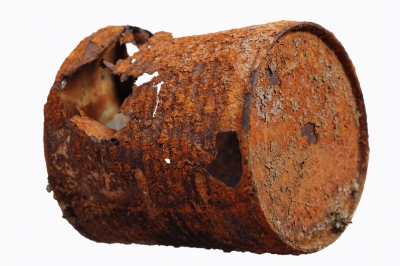Learn more about boiler corrosion and how to better take care of your heating system.

What is Boiler Corrosion?
Corrosion, simply put, is a metal’s reversion to its ore form. For example, when iron corrodes, it reverts to iron oxide. Boiler corrosion is a phenomenon that costs the industry billions of money in revenues. Also known as stress corrosion cracking, caustic cracking or caustic embrittlement, it is the active destruction of sound boiler metal by the pitting action of dissolved oxygen in the boiler water. This creates deep holes in the metal resulting to reduced reliability.
What causes corrosion?
Corrosion usually occurs when the alkaline level in the water is low or if the metal is exposed to oxygen bearing water. High temperatures and stresses in the metal will also accelerate the corrosion process.
Corrosion is commonly cause by the following factors:
- dissolved gases such as oxygen and carbon dioxide
- under-deposit attack
- low pH
- attack of areas weakened by mechanical stress
What are the types of corrosion?
There are several different types of corrosion:
- Galvanic corrosion
- Caustic corrosion
- Acidic corrosion
- Hydrogen embrittlement
- Oxygen attack
- Carbon dioxide attack
How do you stop and prevent boiler corrosion?
The procedures in preventing and / or stopping boiler corrosion will vary. This will depend on the type of corrosion present, as well as the specific vulnerabilities of the boiler tube. Generally, the best way to prevent and stop corrosion is through proper maintenance, control and monitoring of your boiler. Ensure that you schedule your boiler service annually so that a gas safe registered engineer can inspect your boiler and ensure it is in perfect working condition.
Another way of managing corrosion in your boiler is using deaerator. This is an equipment that ensures dissolved gasses are completely removed. There are several types of deaerator that works for different types of corrosion. On the other hand, the addition of sodium sulfite is used as an internal treatment for dissolved oxygen corrosion while a volatile amine is used for the internal treatment of carbon dioxide.
Get more help on boiler corrosion from RJ Gas by calling us today.








